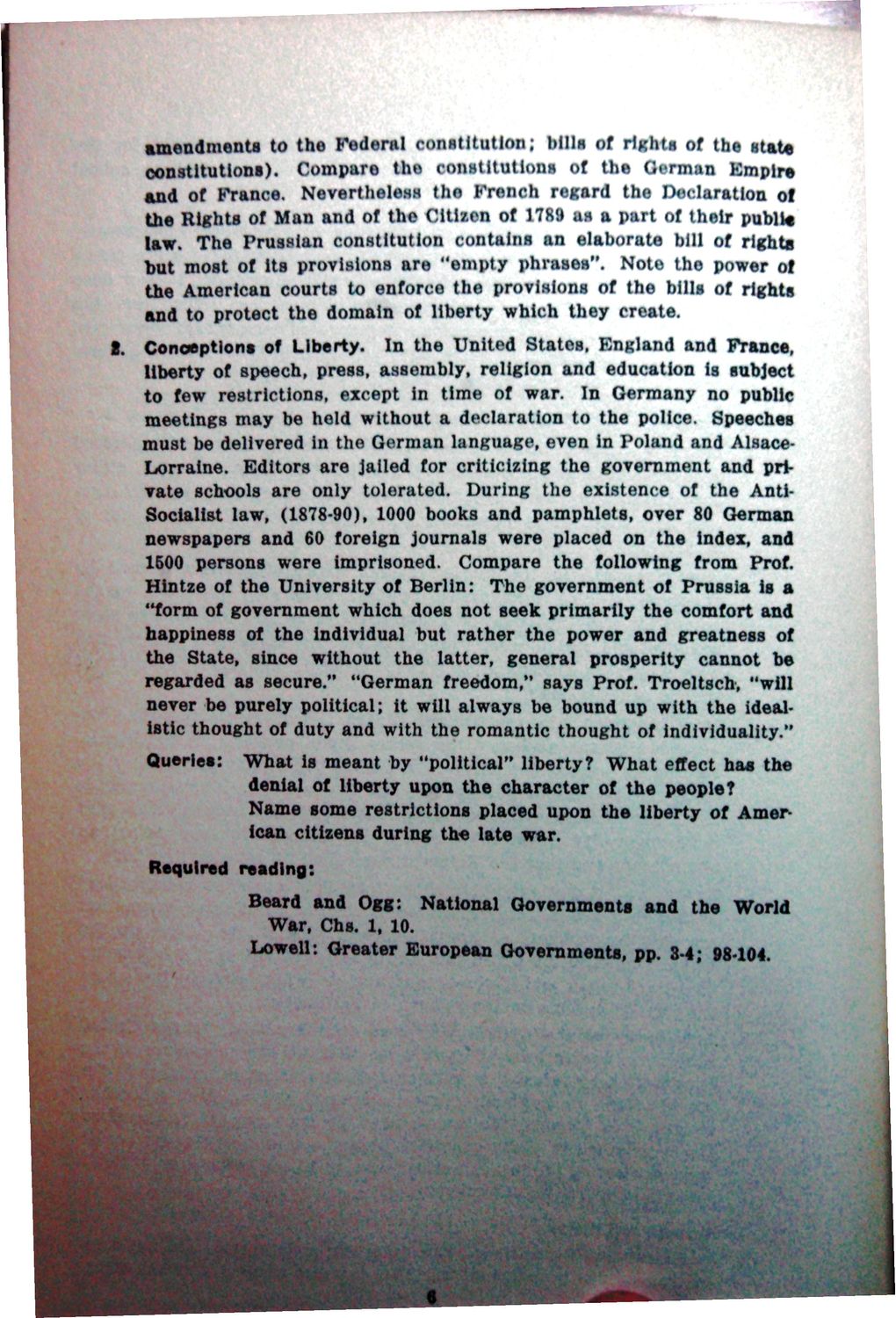| |
| |
Caption: War Publications - WWI Compilation 1923 - Article 48
This is a reduced-resolution page image for fast online browsing.

EXTRACTED TEXT FROM PAGE:
amendments to the Federal constitution; bills of rights of the state constitutions). Compare the constitutions of the German Empire and of France. Nevertheless tho French regard the Declaration of the Rights of Man and of the Citizen of 1789 as a part of their public law. The Prussian constitution contains an elaborate bill of rights but most of Its provisions are "empty phrases". Note tho power of the American courts to enforce the provisions of the bills of rights and to protect the domain of liberty which they create. Conceptions of Liberty. In the United States. England and France, liberty of speech, press, assembly, religion and education is subject to few restrictions, except in time of war. In Germany no public meetings may be hold without a declaration to the police. Speeches must be delivered in the German language, even In Poland and AlsaceLorraine. Editors are jailed for criticizing the government and private schools are only tolerated. During the existence of the AntiSocialist law, (1878-90), 1000 books and pamphlets, over 80 German newspapers and 60 foreign journals were placed on the index, and 1500 persons were imprisoned. Compare the following from Prof. Hintze of the University of Berlin: The government of Prussia is a 'form of government which does not seek primarily the comfort and happiness of the individual but rather the power and greatness of the State, since without the latter, general prosperity cannot be regarded as secure." "German freedom," says Prof. Troeltsch, "will never be purely political; it will always be bound up with the idealistic thought of duty and with the romantic thought of individuality." Queries: What is meant by "political" liberty? What effect has the denial of liberty upon the character of the people? Name some restrictions placed upon the liberty of American citizens during the late war. Required reading: Beard and Ogg: National Governments and the World War, Chs. 1, 10. Lowell: Greater European Governments, pp. 3-4; 98-104. /
| |